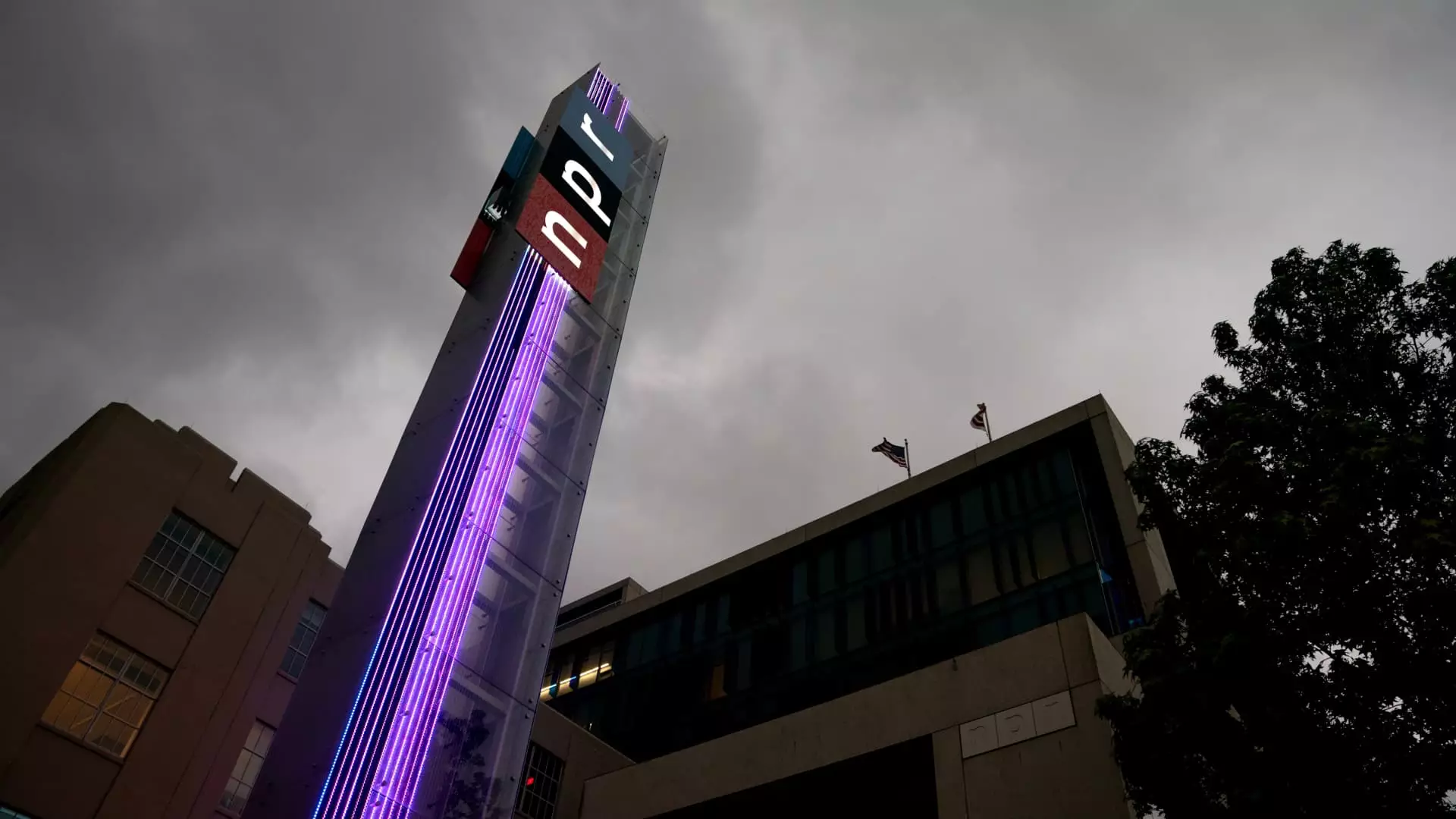The recent lawsuit filed by National Public Radio (NPR) against former President Donald Trump exemplifies a deeper fear affecting journalists, broadcasters, and the public alike: the precariousness of press freedom in the United States. Trump’s executive order halting federal funding for NPR and other public radio stations is not just a fiscal move; it represents an alarming encroachment on First Amendment rights. As citizens of a democracy, we must scrutinize such threats that jeopardize the lifeblood of an informed citizenry—independent journalism.
This legal battle illustrates how Trump’s directive directly opposes the principles upon which public broadcasting was established. NPR, alongside Colorado Public Radio, Aspen Public Radio, and KSUT Public Radio, contends that this order isn’t merely about money; it’s about the survival of a vital information source relied upon by millions. It is shameful that any administration would attempt to wield federal funding as a tool for retaliation against perceived bias, effectively punishing media outlets that challenge the establishment.
Political Manipulation in the Name of Budget Efficiency
The underlying rationale for Trump’s executive order is steeped in an ideology that dismisses public broadcasting as outdated and unnecessary. In a world swayed by sensationalism and sound bites, it’s a monumental folly to undermine institutions like NPR, whose commitment to factual reporting and comprehensive storytelling diverges from the average 24-hour news cycle’s superficiality. Trump’s administration claimed that public funding was “corrosive” to journalistic integrity; however, one must wonder if the real corrosion comes from the exertion of political power over independent thought.
By arguing that taxpayer dollars should not support what is deemed ‘biased’ reporting, the White House not only presents a narrow view of bias but also endangers the diversity of narratives essential for a well-rounded public discourse. Federal support for public broadcasting was not intended to promote a singular political agenda but instead to ensure that marginalized voices and less commercially viable stories could still be told. Undermining this funding solely because it doesn’t align with the administration’s worldview is not a step toward efficiency; it is an authoritarian impulse disguised as fiscal responsibility.
The Legal Stakes: First Amendment Rights Under Fire
The crux of NPR’s lawsuit rests on a firm assertion of First Amendment rights—the protection of speech and press free from government interference. It’s a poignant reminder that Congress established an infrastructure for public broadcasting with the intent to enrich the democratic dialogue, not to enable momentary political gain. The argument posits that Trump’s executive order is a direct contravention of constitutional protections designed to shield media from government censorship and control.
The complaint penned by NPR and its affiliates characterizes the president’s actions as “textbook retaliation.” This is an accusation worth serious contemplation. By branding NPR as biased, the administration doesn’t simply reject their narratives; it actively punishes them for it. This legal framework centers on whether the government can impose its will on private, nonprofit entities, and the outcome could redefine the boundaries of freedom of expression in American society.
A Call to Action: The Importance of Supporting Independent Journalism
This lawsuit serves as a critical alarm bell for all to heed. The jolting reality is that when the federal government threatens public institutions dedicated to providing a diverse landscape of news, it threatens the very fabric of democracy itself. Allowing these attacks to go unchecked could set a dangerous precedent, one that emboldens future administrations to erode the barriers separating political influence from media independence.
In supporting NPR and similar entities, we affirm not only the value of diverse news coverage but also the fundamental role that independent journalism plays in holding power to account. Public broadcasting, in its mission to provide balanced reporting and cultural programming, needs to be preserved and bolstered rather than diminished. Now more than ever, we must unite in advocacy for press freedom, pushing back against any forces that aim to silence dissenting voices in pursuit of a more informed society.


Leave a Reply